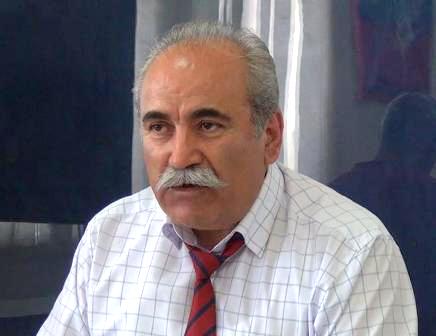 The authorities of the Republic of Western Armenia (State of Armenia) – the Parliament and the Government, at their joint meeting on July 17, 2023, decided to appeal to the UN Secretary General and the Heads of State – Permanent Members of the UN Security Council with an Address: «STATEMENT A call for taking decisive actions for a peaceful, just and final settlement of the Artsakh conflict and a proposal for a UN-sponsored border demarcation between the State of Armenia and the Republic of Azerbaijan», sending them also the relevant political and legal package of documents.
The authorities of the Republic of Western Armenia (State of Armenia) – the Parliament and the Government, at their joint meeting on July 17, 2023, decided to appeal to the UN Secretary General and the Heads of State – Permanent Members of the UN Security Council with an Address: «STATEMENT A call for taking decisive actions for a peaceful, just and final settlement of the Artsakh conflict and a proposal for a UN-sponsored border demarcation between the State of Armenia and the Republic of Azerbaijan», sending them also the relevant political and legal package of documents.
(below we publish the text of the appeal to the media with some abbreviations)
We inform you that this Address has already been delivered to the addressees and we are informing the public about it today.
We are pleased that on August 11, 2023, the Republic of Armenia also applied to the UN Security Council with a request to convene an emergency meeting in connection with the “blockade of the Lachin corridor by Azerbaijan and the deterioration of the humanitarian situation in Nagorno-Karabakh.”
We hope that the measures taken will give the expected results.
Press Service of the National Assembly (Parliament) of Western Armenia
August 15, 2023
***
To the United Nations Secretary-General
Mr. Antonio Guterres
To the Heads of States – Permanent Members
of the United Nations Security Council
S T A T E M E N T
A call for taking decisive actions for a peaceful, just and final settlement of the Artsakh conflict
and a proposal for a UN-sponsored border demarcation between the State of Armenia
and the Republic of Azerbaijan
We appeal to you again.
I.
1) Taking into account the cruel reality that since 1905, 1918-1920, 1988 and up to the present, the Genocide and deportation of the Armenian population of Baku, Azerbaijan (Western Caspian region) and Artsakh (Nagorno-Karabakh), falsification and destruction of the cultural heritage of Armenians, organized and committed first by the Azerbaijani nationalist Musavat Party, then, by successive governments of the Azerbaijan Democratic Republic, the Azerbaijan Soviet Socialist Republic and the current Republic of Azerbaijan is still going on;
2) Taking into account that the Republic of Azerbaijan and the Republic of Turkey, having formed a coalition with other countries, with the involvement of mercenary terrorists using prohibited types of weapons, since September 27, 2020 carried out a 44-day aggression and waged war against the Republic of Artsakh;
3) Taking into account that since December 12, 2022, in fact blocking and besieging the Republic of Artsakh, the current authorities of the Republic of Azerbaijan have been implementing a policy of ethnic cleansing, deportation and Genocide against the Armenians of Artsakh;
4) Taking into account that the aggressive rhetoric and aggressive actions of the Republic of Azerbaijan and the Republic of Turkey, accompanied by threats from officials, do not contribute to the establishment of peace in the South Caucasus and the Middle East;
5) Taking into account that the currently planned peace treaty between the Republic of Azerbaijan and the Republic of Armenia will in fact be considered an illegal treaty forcibly imposed on the Armenian people and the Republic of Armenia, in no way can ensure long-term peace between the two countries and peoples.
II.
1) Recalling that the OSCE Minsk Group, established to resolve the Nagorno-Karabakh conflict, was guided by three main principles adopted by the international community: “exclusion of the use of force or threat of force, application of the right of peoples to self-determination, respect for territorial integrity”;
2) Considering that the OSCE Minsk Group co-chair countries — the United States, Russia, France, nevertheless, failed to prevent the aggression and war of the Republic of Azerbaijan against the Republic of Artsakh on September 27, 2020;
3) Considering also the fact that the joint work of the OSCE Minsk Group co-chair countries — the United States, Russia, France is frozen today;
4) Taking into account also the fact that the current Prime Minister of the Republic of Armenia refuses to defend the right of the Artsakh Armenians to self-determination, which, in fact, is a rejection of one of the three basic principles adopted by the international community: “exclusion of the use of force or threat of force, application of the right of peoples to self-determination, respect for territorial integrity” and from the point of view of the Declaration of Independence, the Constitution, laws and decisions of the Republic of Armenia, it is unconstitutional and illegal.
We inform you that the vast majority of the population of the Republic of Artsakh, the Republic of Armenia, as well as the Armenians of the Diaspora are categorically against this position of the current Prime Minister of the Republic of Armenia.
III.
Based on Articles 11, 12, 35 of the UN Charter, according to which:
– as stated in Article 11, paragraph 2: “The General Assembly may discuss any questions relating to the maintenance of international peace and security brought before it by any Member of the United Nations, or by the Security Council, or by a state which is not a Member of the United Nations in accordance with Article 35, paragraph 2, and, except as provided in Article 12, may make recommendations with regard to any such questions to the state or states concerned or to the Security Council or to both. Any such question on which action is necessary shall be referred to the Security Council by the General Assembly either before or after discussion”,
– and as stated in Article 35, paragraph 2: “A state which is not a Member of the United Nations may bring to the attention of the Security Council or of the General Assembly any dispute to which it is a party if it accepts in advance, for the purposes of the dispute, the obligations of pacific settlement provided in the present Charter”.
IV.
1) Based on the historical, legal and political foundations, according to which the Paris Peace Conference in 1919-1920 de facto and de jure recognized the state of the Armenian people as the Armenian state – the State of Armenia, noting at the same time that this recognition does not predetermine the borders of the Armenian state, the continuityof which is currently the Republic Western Armenia (State of Armenia);
2) Based on the fact that there is no legitimate international document or treaty recognizing Artsakh as the part of the Republic of Azerbaijan;
3) Based on the fact that at the Paris Peace Conference (1919-1920) decisions were made on the borders of the State of Armenia, according to which the border between the State of Armenia and the Republic of Turkey is regulated by an Arbitration Decision of the 28th President of the United States Woodrow Wilson, and the border between the State of Armenia and the Republic of Azerbaijan — according to the document “Report-proposal on determination of the borders of Armenia” dated February 24, 1920, submitted by the Special Commission for the Determination of the Borders of Armenia at the Paris Peace Conference (1919-1920).
At the same time, data on the national composition of the population as of before the outbreak of the First World War were taken as a basis, as a principle;
4) We, as the Republic of Western Armenia (the State of Armenia), once again propose to demarcate the border between the State of Armenia and the Republic of Azerbaijan under the auspices of the UN, according to the “Report-proposal on the determination of the borders of Armenia” dated February 24, 1920 by the Special Commission of the Paris Peace Conference (1919-1920).
V.
Recall that we made such a proposal in the Statement to the UN Secretary-General and the permanent members of the UN Security Council “On the demarcation of the border between the State of Armenia and the Republic of Azerbaijan” dated August 7, 2019. The Statement was officially received and registered at the UN Headquarters in New York on August 26, 2019.
VI.
In fact, this is a statement-proposal:
- To stop the Genocide of the Armenians of Azerbaijan (Western Caspian Region), Artsakh (Nagorno-Karabakh) and the Armenian population of the border settlements of the Republic of Armenia, which has been going on for more than 100 years;
2) To stop the destruction of the Armenian cultural heritage in the above-mentioned region;
3) To ensure the right of the Armenian people to live, develop and have a future;
4) To ensure long-term and sustainable peace between two peoples and two countries – Azerbaijanis and Armenians, the Republic of Azerbaijan and the Republic of Armenia.
VII.
The decision on this statement “A call for decisive action for a peaceful, just and final settlement of the Artsakh conflict and a proposal to demarcate the border between the State of Armenia and the Republic of Azerbaijan under the auspices of the UN” was adopted on July 5, 2023 at a joint session of the National Assembly (Parliament) of Western Armenia and the Government of the Republic of Western Armenia (State of Armenia).
We notify that:
1) We are ready to provide additional information and documents that you will need regarding this Statement;
2) If necessary, we are ready to send you an authorized representative of the Republic of Western Armenia (State of Armenia) for direct contacts and discussions;
3) We enclose a copy of the Statement “On the demarcation of the border between the State of Armenia and the Republic of Azerbaijan”, sent to you on August 7, 2019.
Radik Khamoyan
President of the Republic of Western Armenia (State of Armenia)
Tigran Pashabezyan
Prime Minister of the Republic of Western Armenia (State of Armenia)
Armen Ter-Sarkisyan
President of the National Assembly (Parliament) of Western Armenia
July 17, 2023







